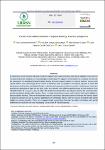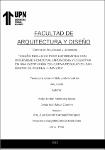Mostrar el registro sencillo del ítem
Factors of educational inclusion to improve learning: Teachers' perspectives
| dc.contributor.author | Huaman Romani, Yersi Luis | |
| dc.contributor.author | Carrasco Choque, Fredy | |
| dc.contributor.author | Carrillo De la Cruz, Linda Katherine | |
| dc.contributor.author | Orosco Gavilan, Juan C. | |
| dc.contributor.author | Vasquez Alburqueque, Iris Liliana | |
| dc.date.accessioned | 2023-10-19T23:10:24Z | |
| dc.date.available | 2023-10-19T23:10:24Z | |
| dc.date.issued | 2023-02-09 | |
| dc.identifier.citation | Huaman, Y. L., Carrasco, F., Carrillo, L. K., Orosco, J. C. & Vasquez, I. L. (2023). Factors of educational inclusion to improve learning: Teachers' perspectives. International Journal of Innovative Research and Scientific Studies, 6, 58-265. https://doi.org/10.53894/ijirss.v6i2.1286 | es_PE |
| dc.identifier.other | . | es_PE |
| dc.identifier.uri | https://hdl.handle.net/11537/34673 | |
| dc.description.abstract | In elementary school, inclusive education should be adapted to the needs of students with special abilities in areas such as recreational activities, feedback and methodologies and planning. The objective of the research is to analyze and describe the perspectives of educational inclusion factors among elementary school teachers to improve students’ learning with special abilities. The methodology of the research is descriptive with a quantitative correlational approach in which 823 elementary school teachers participated through a voluntary and anonymous online survey with a measurement instrument that had two dimensions of eight and ten items which were optimal in the different statistical tests as in the analysis of the reliability factors of Cronbach’s alpha (0. 968). The result shows that teachers are willing to improve the curriculum plan, provide specialized attention after training. There is a high perspective to interact with students with special abilities to improve student learning. There are institutional constraints on primary education teachers to improve the learning factors of inclusive education as well as unknown applications or technologies that can help the learning of students with special abilities in primary education. There are non-governmental organizations that seek the welfare of students with special abilities but the results are not very encouraging due to a lack of financial capacity. | es_PE |
| dc.format | application/pdf | es_PE |
| dc.language.iso | eng | es_PE |
| dc.publisher | Innovative Research Publishing | es_PE |
| dc.rights | info:eu-repo/semantics/openAccess | es_PE |
| dc.rights.uri | https://creativecommons.org/licenses/by-nc-sa/4.0/ | * |
| dc.source | Universidad Privada del Norte | es_PE |
| dc.source | Repositorio Institucional - UPN | es_PE |
| dc.subject | Educational inclusión | es_PE |
| dc.subject | Inclusion | es_PE |
| dc.subject | Learning | es_PE |
| dc.subject | Learning achievement | es_PE |
| dc.subject | Special abilities | es_PE |
| dc.subject | Teachers | es_PE |
| dc.title | Factors of educational inclusion to improve learning: Teachers' perspectives | es_PE |
| dc.type | info:eu-repo/semantics/article | es_PE |
| dc.publisher.country | PE | es_PE |
| dc.identifier.journal | International Journal of Innovative Research and Scientific Studies | es_PE |
| dc.description.peer-review | Artículo científico | es_PE |
| dc.subject.ocde | https://purl.org/pe-repo/ocde/ford#5.08.04 | es_PE |
| dc.description.sede | Sede virtual | |
| dc.identifier.doi | https://doi.org/10.53894/ijirss.v6i2.1286 |





